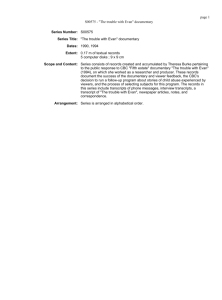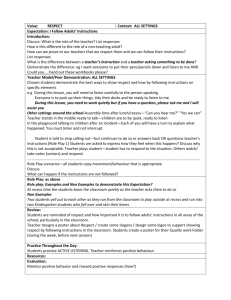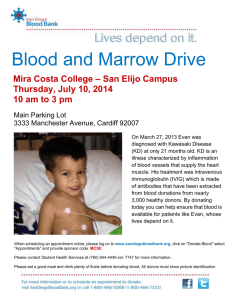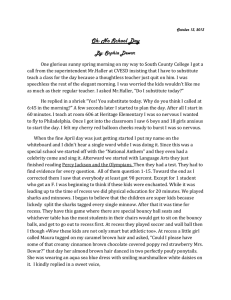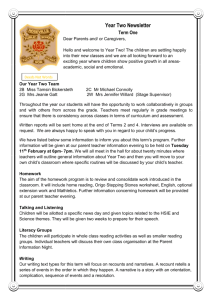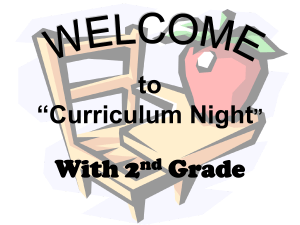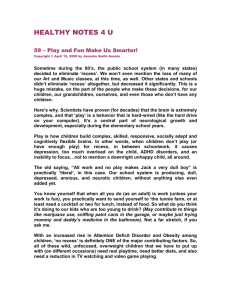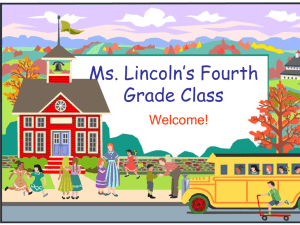Literacy Narrative
advertisement
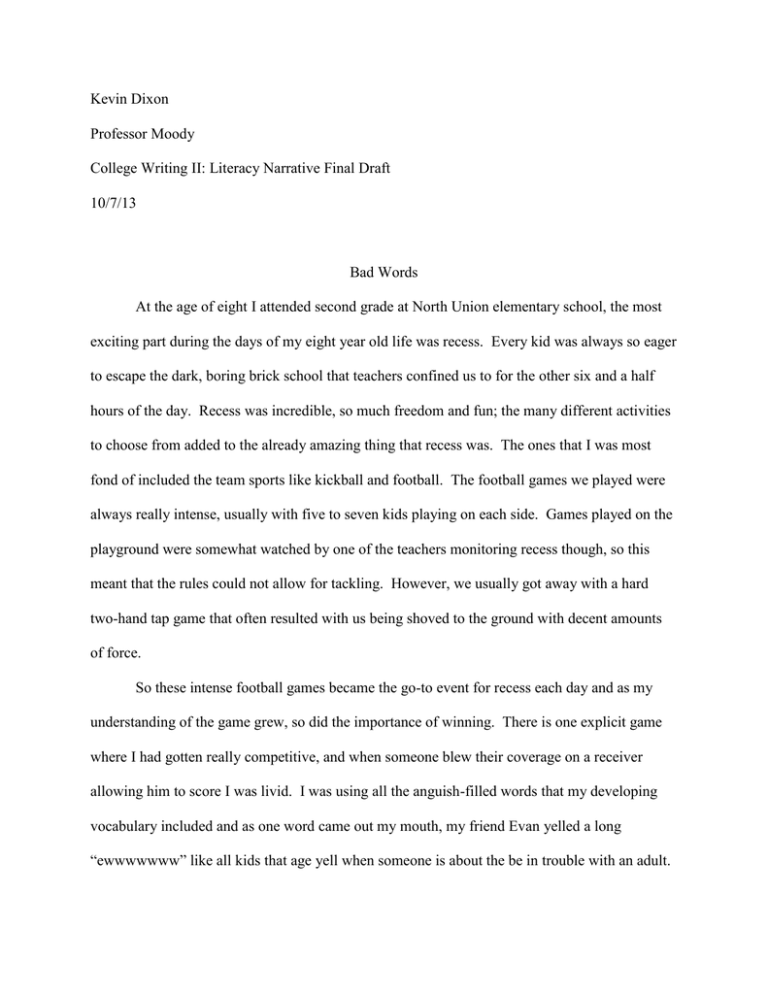
Kevin Dixon Professor Moody College Writing II: Literacy Narrative Final Draft 10/7/13 Bad Words At the age of eight I attended second grade at North Union elementary school, the most exciting part during the days of my eight year old life was recess. Every kid was always so eager to escape the dark, boring brick school that teachers confined us to for the other six and a half hours of the day. Recess was incredible, so much freedom and fun; the many different activities to choose from added to the already amazing thing that recess was. The ones that I was most fond of included the team sports like kickball and football. The football games we played were always really intense, usually with five to seven kids playing on each side. Games played on the playground were somewhat watched by one of the teachers monitoring recess though, so this meant that the rules could not allow for tackling. However, we usually got away with a hard two-hand tap game that often resulted with us being shoved to the ground with decent amounts of force. So these intense football games became the go-to event for recess each day and as my understanding of the game grew, so did the importance of winning. There is one explicit game where I had gotten really competitive, and when someone blew their coverage on a receiver allowing him to score I was livid. I was using all the anguish-filled words that my developing vocabulary included and as one word came out my mouth, my friend Evan yelled a long “ewwwwwww” like all kids that age yell when someone is about the be in trouble with an adult. When Evan did this I was very confused and mostly focused on the game still, but that soon changed as all play was stopped because Evan, who was on my team, felt the need to make sure that he let me know that what I had said was a “bad word”. I stood up for myself immediately and returned his accusation with the declaration that I had no idea what he was talking about, words were just words, I knew it was not nice to call someone a name or insult them, but outside of that I had never heard someone refer to something as a “bad word”. Evan, who was determined to prove that I was wrong and he was right, decided to bring a third party in to mediate the situation, the third party he chose was the teacher on recess duty. That day it was actually my specific classroom teacher, Mrs. Lewis, who happened to be the one on duty. Evan said, “Mrs. Lewis, Kevin and us were playing football and then when Kevin got mad he yelled the D-word”. Mrs Lewis did not even let me get a word in before she scarily demanded information from me asking, “Kevin! Is this true?”. I told her that I did not know what a “Dword” was and that I would never use bad language. Apparently this answer would not satisfy her because she said “Kevin come with me, we’re going to have a talk while you have a timeout”. I was so frustrated with Mrs. Lewis for siding with my supposed friend Evan, I was mad at Evan for making this situation even happen, I was upset I was losing my recess time for doing nothing wrong, and mainly I was confused by not being able to comprehend why all of this was happening to me, I was a good kid. After taking me to the front of the play ground away from all the kids and fun, Mrs. Lewis sat at a picnic table to finish punishing me and make this day even worse. She started in with, “do you know what word you said, do you know what it means, and where did you hear it used?”. I simply answered her questions, having figured out that D-word had to be referring to dammit, which I had found to be quite similar to dangit, I told her I had heard it used in a movie and thought it was just another way of saying dangit. She then proceeded with asking me, “have you ever talked with your parents about “bad words”?”. I told her my parents had taught me to not call people names because it was hurtful, but I had never heard that some words and phrases were off limits because they were bad and should not be used. I thought the whole concept was weird, like why would the words even exist if they were not supposed to be used. Anyways, I learned that day that words were not always what they seemed; some words that were okay in some conversations, could hurt people when used in a different way. I also started beginning to learn that there were things out there that were okay for adults to do or say, but they were bad for me to use and would get me into trouble at school. This event in my life greatly shaped my knowledge of words and language. I actually rarely used “bad language” all the way through high school, and I believe the reason for that is rooted in the day I learned that there existed words that would get me in trouble with my teachers. The way that this lesson was learned left such a strong imprint in my life that it actually had a long standing effect on me and how I spoke every day for ten years.
